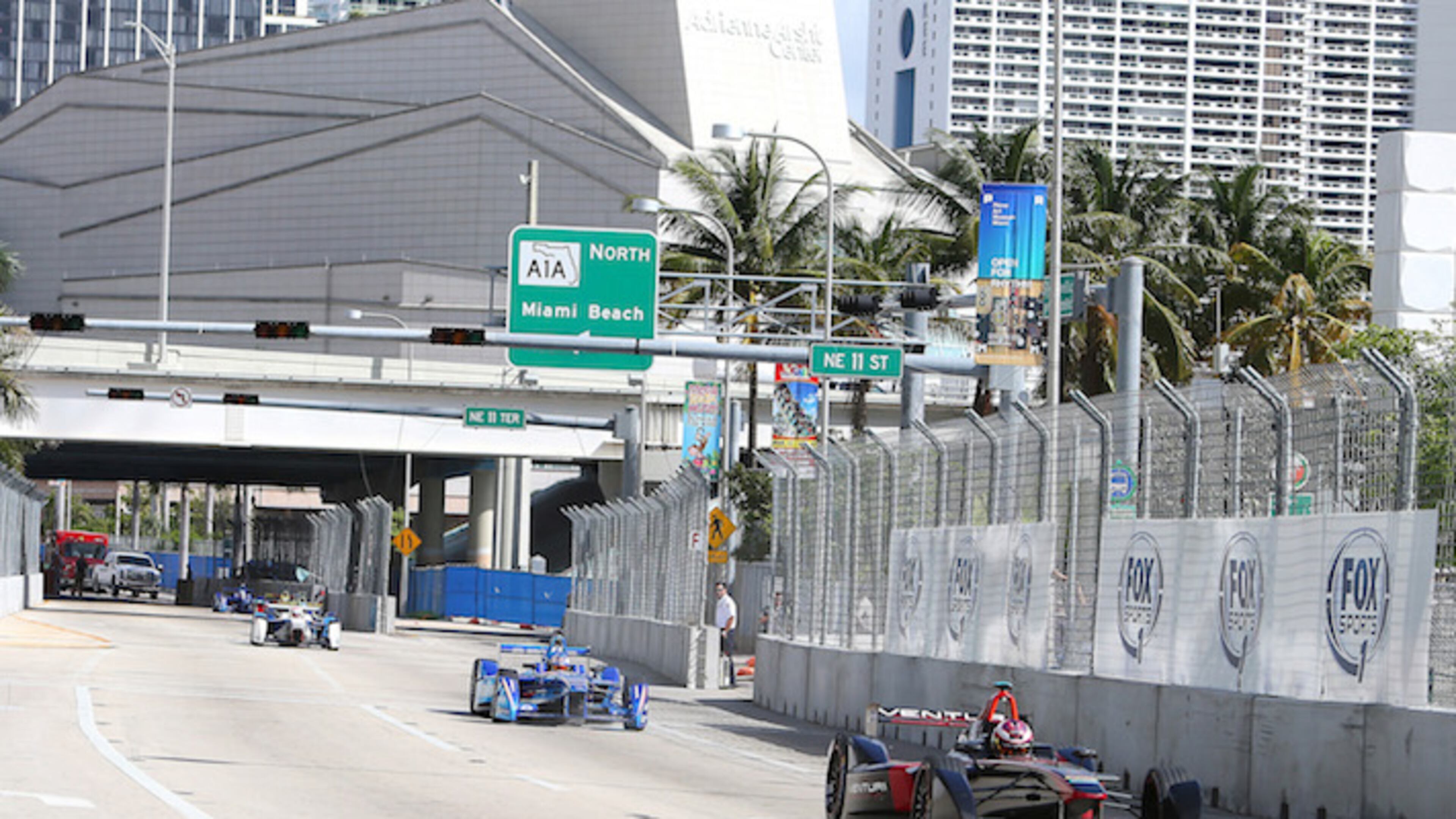Formula One an opportunity for Miami, but will a deal get done?

Imagine Miami getting the Super Bowl of auto racing every year for the next decade — without the fuss (and cost) that comes with landing the NFL's championship game.
That's basically Formula One's sales pitch to the people of Miami — and the politicians who represent them — as F1 organizers and Miami City Manager Emilio Gonzalez close in on a soft July 1 deadline to hammer out a multi-year deal that would bring the world's top auto racing circuit to downtown Miami.
"We've been working on this for quite some time," Sean Bratches, Formula One's managing director of commercial operations, told the Miami Herald Saturday from southeastern France, ahead of the French Grand Prix. "Progress has been on pace and we anticipate closing something on around that deadline.
" ... We're very encouraged about the prospect of a Grand Prix in Miami," Bratches added. "The brands align incredibly well. Both Formula One and Miami are all about luxury, fashion, celebrity, and have rich sporting histories. We think the opportunity here to have a very positive material impact on Miami on myriad fronts is paramount."
If Gonzalez and F1 can strike a deal, it would still need to be approved by the entire commission. Cautious optimism abounds that Formula One cars will race through the streets of Miami beginning in October 2019.
The proposed Formula One Miami Grand Prix — which is expected to draw tens of thousands of visitors to Miami, both from across the country and around the world — will have an economic impact in the hundreds of millions of dollars, F1 argues. And it will favorably introduce Miami as possible a tourist destination to the event's massive global television audience.
"Miami is a dynamic curator of culture and hosting a Formula One race is an opportunity unlike any other to showcase that on a global scale," said Dolphins CEO Tom Garfinkel, who has been involved in the planning of the event. Garfinkel's boss, Dolphins owner Stephen Ross, and his RSE Ventures would be the race's promoter.
"F1 has come here and listened and been flexible. People here in Miami are too forward thinking not to take advantage of this huge opportunity," Garfinkel added. "This is nothing like other races that have been here in the past; it's much, much more significant."
Those are the pros.
The cons?
Yet another huge, potentially disruptive event would come to the Bayfront Park area, and some locals are fed up with the inconveniences associated with them.
Recently, an attorney representing 11 downtown residents sent a cease-and-desist letter to City Hall demanding the city halt negotiations with F1 and stop hosting other "mega-events" in Bayfront Park, such as Ultra Music Festival and Rolling Loud Festival.
Their argument: Extremely high noise levels and late-night operations in the park or on Biscayne Boulevard hurt residents' health, quiet enjoyment of their homes and the condition and value of their property.
But this is no Ultra, which is a giant party catered to young people with its loud, pulsating music blaring late into the night.
Rather, F1 attracts a more sophisticated (i.e. rich), "family-friendly" crowd, and Bratches insists that noise will not be an issue past dinnertime.
Race time was one of several concessions Formula One has made to its would-be neighbors. The series has held a number of public meetings and along with Dolphins management has met with stakeholders from neighborhood groups, the Miami Heat, Port Miami, the Downtown Development Authority and Bayside.
The planned course has already been altered due to concerns raised by the Heat and the Parcel B waterfront park just east of the AmericanAirlines Arena.
The new proposed course runs through part of Bayfront Park (Bratches has promised "to leave it better than we found it" with enhancement and beautification efforts), crosses over to PortMiami and back, but avoids the AmericanAirlines Arena and the ingress and egress to the Intercontinental Hotel. While parts of the park will be closed in the weeks leading up to the event, the playground portion will remain open at all times.
Hosting a Grand Prix is so desirable that cities often offer lucrative financial incentives to get one; in this case, the roles are reversed. Formula One badly wants into this market, and is willing to race here with minimal use of taxpayer dollars.
So why isn't there more buzz (and support) for bringing it to Miami, which prides itself as being the ultimate event town?
While F1 is massively popular globally — the series claims 1.8 billion viewers tuned in last year — open wheel racing lags behind the major sports domestically.
And there might be a been-there, done-that sense among those who have lived here long enough to remember when American Le Mans and CART racing had stops in Miami. The confusion is understandable; the Grand Prix of Miami name has been used on and off for the better part of a century.
But the events could not be more different. CART was the equivalent of Major League Soccer; Formula One is the Champions League of auto racing. Organizers call it the second-biggest sporting event on the planet, behind the World Cup.
"Formula One is the pinnacle of racing, full stop," Bratches said. "There's nothing even close to it. The 20 best racers in the world are in this series."
Plus F1 fans have the means to travel — and do. The series has already requested some 35,000 hotel rooms for its proposed 2019 race, and expects more than 200,000 spectators to line Miami's streets. More than half of the visitors will be from outside of the United States.
The estimated economic impact (which experts say is often overstated, regardless of sport) for South Florida? A whopping $700 million.
Or to put it another way: It's basically a Super Bowl held in Miami, every year for the next decade.
More Stories
The Latest

